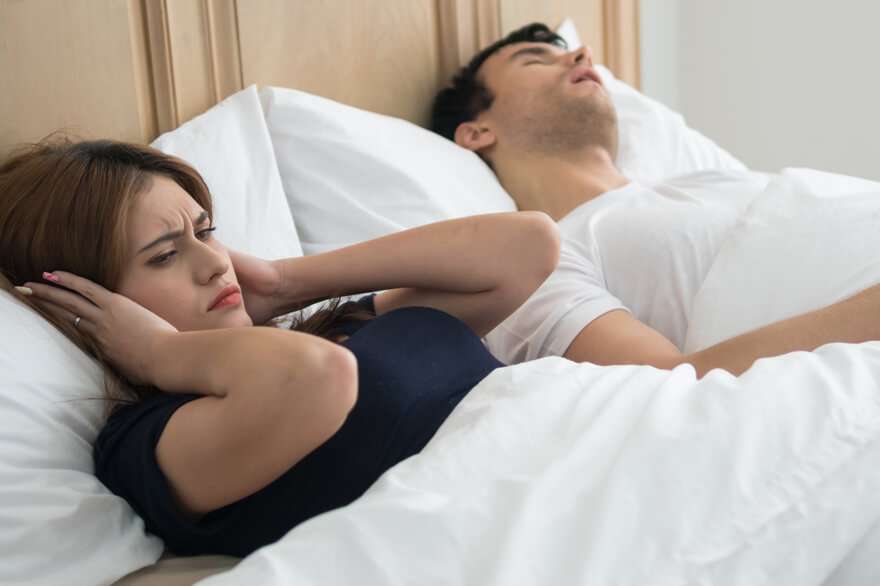
Sleep Apnea & Snoring
Sleep Apnea
It is a serious disorder of sleep that occurs when a person’s breathing repeatedly stops and starts during sleep. This means the brain and the rest of the body be does not get enough oxygen. Also, the symptoms may include loud snoring, daytime sleepiness and restless sleep.
There are two types of sleep apnea:
Obstructive sleep apnea (OSA):
It is caused when there is a physical blockage of the upper airway, usually when the soft tissue present in the back of the throat collapses during sleep. Obstructive sleep apnea is the most common of the two forms of sleep apnea,
Central sleep apnea (CSA):
A signaling problem in the nervous system due to which the brain fails to signal the muscles to breathe due to instability in the respiratory control center.
The person will stop breathing when the upper airway closes or the signal is held up. This will happen temporarily but repeatedly causing interruption to sleep. The person may take a deep breath, snort, or awaken completely with a sensation of smothering, gasping or choking when they breathe again.
If left untreated, sleep apnea can increase the risk of health problems and may lead to other complications such as heart disease and depression. In addition, it can leave a person feeling drowsy, increasing the risk of accidents while driving or working, poor performance in everyday activities, such as at work and school.
Symptoms
A person suffering from sleep apnea may not be aware of their symptoms, but another person may notice that while sleeping the person:
- stops breathing for some time, followed by a noisy breath
- gasps for air
- snores loudly
The individual may notice that they experience:
- fatigue
- restless sleep or insomnia
- difficulty concentrating
- waking up several times a night to urinate
- awakening with a dry mouth or sore throat
- headaches
- irritability
- heartburn
- decreased libido and erectile dysfunction
Treatment
Treatment aims at normalizing the breath during sleep and address any underlying health problems. The options of treatment will depend on the causes and severity of symptoms.
Lifestyle changes
Lifestyle modifications are very much essential to normalize breathing and are critical first steps in the treatment.
They include:
- following a heart-healthy diet
- developing healthy sleeping habits
- limiting alcohol consumption
- quitting smoking
- managing weight
- sleeping on the side
Other treatment options include:
Continuous positive airway pressure (CPAP) therapy
This is the main treatment for sleep apnea. This procedure helps keep the airway open by gently providing a constant stream of positive pressure air through a mask.
Some people have trouble using continuous positive airway pressure (CPAP) therapy and stop the treatment before achieving any lasting benefit. Simple measures can however help make the equipment more comfortable, and the adjustment period smooth.
Surgical Treatment Options
- Tonsillectomy
- Adenoidectomy
- Palate surgery
- Tongue base surgery
- Maxilla, mandible & hyoid bone framework surgeries
- Surgery for snoring and obstructive sleep apnea
- Septum deviation correction
- Septoplasty & turbinate surgery
- Sinus surgery
- Tonsils & adenoid surgery
Meet Our Doctors

Dr. Aravind Kumar Alwala
MBBS (Osm)., MSENT specialist, Chief Endoscopic Sinus Surgeon
Make an Appointment
Dr. Laxmi Priya Pallapolu
MBBS (Gold Medalist)., MS Ophthal (FICO)Consultant Ophthalmologist, Chief Phaco Surgeon
Make an Appointment